security
-
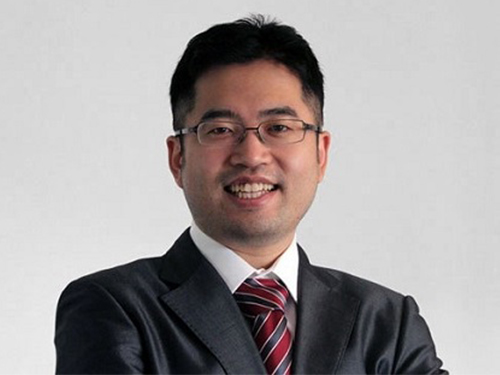 Team Geumo Wins Consecutive Victories in K-Cyber Security Challenge
< Professor Sang Kil Cha >
< Masters Candidate Kangsu Kim and Researcher Corentin Soulet >
Team Geumo, led by Professor Sang Kil Cha from the Graduate School of Information Security, won the K-Cyber Security Challenge in the AI-based automatic vulnerability detection division for two consecutive years in 2018 and 2019.
The K-Cyber Security Challenge is an inter-machine hacking competition. Participants develop and operate AI-based systems that are capable of independently identifying software vulnerabilities and gaining operating rights through hacking. The K-Cyber Security Challenge, inspired by the US Cyber Grand Challenge launched by the Defense Advanced Research Projects Agency (DARPA), is hosted by the Ministry of Science and ICT and organized by the Korea Internet and Security Agency.
Researcher Corentin Soulet of the School of Computing and master’s student Kangsu Kim of the Graduate School of Information Security teamed up for the competition. Professor Cha, who has led the research on software and systems security since his days at Carnegie Mellon University, succeeded in establishing a world-class system using domestic technology.
In a recent collaboration with the Cyber Security Research Center, Professor Cha achieved a ten-fold increase in the speed of binary analysis engines, a key component of AI-based hacking systems. For this accomplishment, he received the Best Paper Award at the 2019 Network and Distributed System Security Workshop on Binary Analysis Research (NDSS BAR).
Kangsu Kim said, "It is a great honor to win the competition two years in a row. I will continue to work hard and apply my knowledge to serve society.”
(END)
2019.12.20 View 10173
Team Geumo Wins Consecutive Victories in K-Cyber Security Challenge
< Professor Sang Kil Cha >
< Masters Candidate Kangsu Kim and Researcher Corentin Soulet >
Team Geumo, led by Professor Sang Kil Cha from the Graduate School of Information Security, won the K-Cyber Security Challenge in the AI-based automatic vulnerability detection division for two consecutive years in 2018 and 2019.
The K-Cyber Security Challenge is an inter-machine hacking competition. Participants develop and operate AI-based systems that are capable of independently identifying software vulnerabilities and gaining operating rights through hacking. The K-Cyber Security Challenge, inspired by the US Cyber Grand Challenge launched by the Defense Advanced Research Projects Agency (DARPA), is hosted by the Ministry of Science and ICT and organized by the Korea Internet and Security Agency.
Researcher Corentin Soulet of the School of Computing and master’s student Kangsu Kim of the Graduate School of Information Security teamed up for the competition. Professor Cha, who has led the research on software and systems security since his days at Carnegie Mellon University, succeeded in establishing a world-class system using domestic technology.
In a recent collaboration with the Cyber Security Research Center, Professor Cha achieved a ten-fold increase in the speed of binary analysis engines, a key component of AI-based hacking systems. For this accomplishment, he received the Best Paper Award at the 2019 Network and Distributed System Security Workshop on Binary Analysis Research (NDSS BAR).
Kangsu Kim said, "It is a great honor to win the competition two years in a row. I will continue to work hard and apply my knowledge to serve society.”
(END)
2019.12.20 View 10173 -
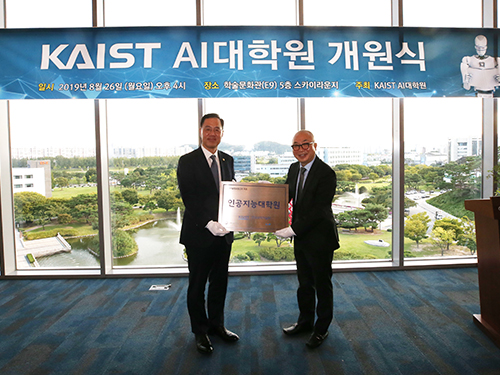 AI Graduate School to Take the Lead in Shaping the Future of AI
KAIST opened its AI Graduate School on August 26 with its first cohort of 22 Master’s and 10 PhD students for the 2019 fall semester. The new graduate school will provide students with a multidisciplinary curriculum incorporating the five key fields of healthcare, autonomous vehicles, manufacturing, security, and emerging technologies, and will offer 18 courses this semester.
KAIST was selected as one of the first three AI graduate schools that the Korean government will financially endorse to nurture top-tier AI specialists. The government will provide 9 billion KRW and KAIST will invest an additional 4.2 billion KRW in the school over the next five years.
KAIST aims to foster top-tiered AI engineers who will work for advancing emergent technologies for the Fourth Industrial Revolution. The school will produce original technologies by driving high-risk, innovative AI research projects and will be the main supplier of highly competent engineers who will lead the industry and advance the global market.
KAIST has a long history of AI research and has a top-level AI education and research infrastructure. In 1990, KAIST launched the first AI research center in Korea. Since then, KAIST has taken the lead in the field by making breakthroughs in intelligent sensing information systems and AI platforms. About 20 percent of the faculty members at KAIST, or about 120 professors, are conducting AI-related research while offering 136 AI-related courses.
The Dean of the AI Graduate School, Song Chong, said, “Our faculty members are the cream of the crop and are all in their early 40s. Although we started with only eight professors, we will employ 20 full-time professors by 2023 and will spare no effort to make the world’s best AI research hub and develop the brightest minds.”
Dean Chong said that three professors are already listed in the top ten when measured by the number of publications from the top two AI conferences, Neural Information Processing System (NIPS) and ICML (International Conference on Machine Learning). KAIST has several highly recognized faculty members who have published more than 10 NIPS/ICML papers over nine years, winning numerous awards including the ACM Sigmetrics Rising Star Award, Google AI Focused Research Award, and INFORMS Applied Probability Best Publication Award.
The number of students attempting to gain admission to the school is also very high. The admission office said that the percentage of applicants being offered admission stood at 9.1 percent. From next year, the school plans to increase the number of enrollments to 40 Master’s and 20 PhD students.
The school will also open the AI Graduate School Research Center in Songnam City next month and expand its collaboration with local companies in the Songnam and Pangyo region, both emerging techno and ICT valleys. With the placement of 60 research personnel in the center, the school plans to play a leading role in building the companies’ technical competitiveness.
The government’s keen interest was well highlighted with the attendance of many dignitaries including the Mayor of Daejeon City Tae-Jong Huh, Vice Minister of Science and ICT Won-Ki Min, and National Assemblyman Sang-Min Lee.
KAIST President Sung-Chul Shin stressed the importance of AI as a growth engine, saying, “AI will be a game changer and a key enabler of major industries. But the winner takes all in industry. Therefore, without producing the world’s top technology, we will not survive in the global market. To foster highly competitive specialists who will take the lead in this industry, we will educate students who can converge multiple disciplines and contribute to national growth and beyond in the years ahead.”
2019.08.27 View 6733
AI Graduate School to Take the Lead in Shaping the Future of AI
KAIST opened its AI Graduate School on August 26 with its first cohort of 22 Master’s and 10 PhD students for the 2019 fall semester. The new graduate school will provide students with a multidisciplinary curriculum incorporating the five key fields of healthcare, autonomous vehicles, manufacturing, security, and emerging technologies, and will offer 18 courses this semester.
KAIST was selected as one of the first three AI graduate schools that the Korean government will financially endorse to nurture top-tier AI specialists. The government will provide 9 billion KRW and KAIST will invest an additional 4.2 billion KRW in the school over the next five years.
KAIST aims to foster top-tiered AI engineers who will work for advancing emergent technologies for the Fourth Industrial Revolution. The school will produce original technologies by driving high-risk, innovative AI research projects and will be the main supplier of highly competent engineers who will lead the industry and advance the global market.
KAIST has a long history of AI research and has a top-level AI education and research infrastructure. In 1990, KAIST launched the first AI research center in Korea. Since then, KAIST has taken the lead in the field by making breakthroughs in intelligent sensing information systems and AI platforms. About 20 percent of the faculty members at KAIST, or about 120 professors, are conducting AI-related research while offering 136 AI-related courses.
The Dean of the AI Graduate School, Song Chong, said, “Our faculty members are the cream of the crop and are all in their early 40s. Although we started with only eight professors, we will employ 20 full-time professors by 2023 and will spare no effort to make the world’s best AI research hub and develop the brightest minds.”
Dean Chong said that three professors are already listed in the top ten when measured by the number of publications from the top two AI conferences, Neural Information Processing System (NIPS) and ICML (International Conference on Machine Learning). KAIST has several highly recognized faculty members who have published more than 10 NIPS/ICML papers over nine years, winning numerous awards including the ACM Sigmetrics Rising Star Award, Google AI Focused Research Award, and INFORMS Applied Probability Best Publication Award.
The number of students attempting to gain admission to the school is also very high. The admission office said that the percentage of applicants being offered admission stood at 9.1 percent. From next year, the school plans to increase the number of enrollments to 40 Master’s and 20 PhD students.
The school will also open the AI Graduate School Research Center in Songnam City next month and expand its collaboration with local companies in the Songnam and Pangyo region, both emerging techno and ICT valleys. With the placement of 60 research personnel in the center, the school plans to play a leading role in building the companies’ technical competitiveness.
The government’s keen interest was well highlighted with the attendance of many dignitaries including the Mayor of Daejeon City Tae-Jong Huh, Vice Minister of Science and ICT Won-Ki Min, and National Assemblyman Sang-Min Lee.
KAIST President Sung-Chul Shin stressed the importance of AI as a growth engine, saying, “AI will be a game changer and a key enabler of major industries. But the winner takes all in industry. Therefore, without producing the world’s top technology, we will not survive in the global market. To foster highly competitive specialists who will take the lead in this industry, we will educate students who can converge multiple disciplines and contribute to national growth and beyond in the years ahead.”
2019.08.27 View 6733 -
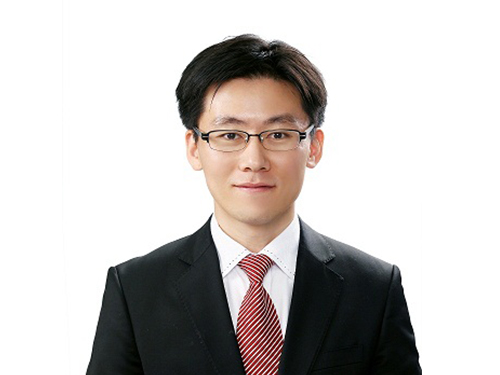 GSIS Graduates Its First Doctor
The Graduate School of Information Security at KAIST (GSIS) granted its first doctoral degree to Il-Goo Lee at the university’s 2016 commencement on February 19, 2016.
Lee received the degree for his dissertation entitled “Interference-Aware Secure Communications for Wireless LANs.”
He explained the background of his research:
“As we use wireless technology more and more in areas of the Internet of Things (IoT), unmanned vehicles, and drones, information security will become an issue of major concern. I would like to contribute to the advancement of communications technology to help minimize wireless interference between devices while ensuring their optimal performance.”
Based on his research, he developed a communications technique to increase wireless devices’ energy efficiency and the level of their security, and created a prototype to showcase that technique.
He plans to continue his research in the development of the next generation WiFi chip sets to protect the information security of IoT and wireless devices.
Since its establishment in March 2011, KAIST’s GSIS has conferred 50 master’s and one doctoral degrees.
2016.02.18 View 9585
GSIS Graduates Its First Doctor
The Graduate School of Information Security at KAIST (GSIS) granted its first doctoral degree to Il-Goo Lee at the university’s 2016 commencement on February 19, 2016.
Lee received the degree for his dissertation entitled “Interference-Aware Secure Communications for Wireless LANs.”
He explained the background of his research:
“As we use wireless technology more and more in areas of the Internet of Things (IoT), unmanned vehicles, and drones, information security will become an issue of major concern. I would like to contribute to the advancement of communications technology to help minimize wireless interference between devices while ensuring their optimal performance.”
Based on his research, he developed a communications technique to increase wireless devices’ energy efficiency and the level of their security, and created a prototype to showcase that technique.
He plans to continue his research in the development of the next generation WiFi chip sets to protect the information security of IoT and wireless devices.
Since its establishment in March 2011, KAIST’s GSIS has conferred 50 master’s and one doctoral degrees.
2016.02.18 View 9585 -
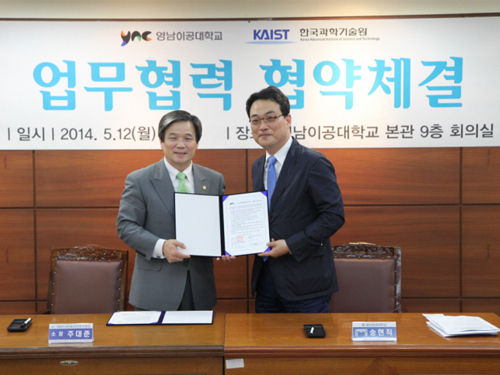 Cyber Security MOU between KAIST and Yeungnam University College (YNC)
The KAIST Cyber Security Research Center and the Department of Cyber Security at Yeungnam University College (YNC) signed a memorandum of understating (MOU) on May 12, 2014 at the YNC campus to cooperate in cyber security education and technological development.
In the MOU, KAIST and YNC agreed to collaborate for the training of professional personnel and the development of new technology for the strengthening of national cyber security, as well as the common use of mutual research environments and group participation of core tasks.
As a result of the MOU interaction, the KAIST Cyber Security Research Center and the Department of Cyber Security at YNC will pursue mutual development through the joint management of the latest educational training programs for cyber security and information protection and the development of up-to-date security technology suited for nuclear energy infrastructures and regional electronic industry complexes. They will also hold joint research seminars and forums.
The Director of the Cyber Security Research Center, Professor Dae-Joon Joo (KAIST Graduate School of Information Security) commented, “With a great deal of experience in the field of cyber security, KAIST, and its excellence in education and research areas, will contribute in many ways, such as increasing the supply of expert cyber-security personnel in the Daegu-Kyungbuk region and actively participate toward greater national cyber security through this collaboration agreement.”
[Picture]
Dae-Jun Joo, KAIST Cyber Security Research Center Director (Left) and Hyun-Jig Song (Right), Chief of Industry-Academic Cooperation Foundation at Yeungnam University College, pose after signing the cooperation agreement on cyber security.
2014.05.17 View 9784
Cyber Security MOU between KAIST and Yeungnam University College (YNC)
The KAIST Cyber Security Research Center and the Department of Cyber Security at Yeungnam University College (YNC) signed a memorandum of understating (MOU) on May 12, 2014 at the YNC campus to cooperate in cyber security education and technological development.
In the MOU, KAIST and YNC agreed to collaborate for the training of professional personnel and the development of new technology for the strengthening of national cyber security, as well as the common use of mutual research environments and group participation of core tasks.
As a result of the MOU interaction, the KAIST Cyber Security Research Center and the Department of Cyber Security at YNC will pursue mutual development through the joint management of the latest educational training programs for cyber security and information protection and the development of up-to-date security technology suited for nuclear energy infrastructures and regional electronic industry complexes. They will also hold joint research seminars and forums.
The Director of the Cyber Security Research Center, Professor Dae-Joon Joo (KAIST Graduate School of Information Security) commented, “With a great deal of experience in the field of cyber security, KAIST, and its excellence in education and research areas, will contribute in many ways, such as increasing the supply of expert cyber-security personnel in the Daegu-Kyungbuk region and actively participate toward greater national cyber security through this collaboration agreement.”
[Picture]
Dae-Jun Joo, KAIST Cyber Security Research Center Director (Left) and Hyun-Jig Song (Right), Chief of Industry-Academic Cooperation Foundation at Yeungnam University College, pose after signing the cooperation agreement on cyber security.
2014.05.17 View 9784 -
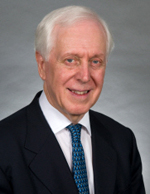 UN biological weapons expert gives lecture at KAIST
KAIST’s student organization, the ICISTS Organizing Committee, invited United Nations Security Council expert Terence Taylor to deliver a speech under the topic of ‘Terrorists and Scientists: Biological Weapons and its impact on Global Society’. The lecture took place on November 19 on the Daejeon campus.
Taylor shared his experiences as a biochemical weapons expert at Iraq and discussed the fast-approaching future of the world with biochemical weapons.
Terence Taylor is a former British military officer, who served various governmental and non-governmental organizations around the world, including UK and U.S. agencies, as well as the UN. His current work involves the non-proliferation and disarmament of nuclear or biological weapons, toxic substances and other weapons of mass destruction.
ICISTS Organizing Committee is a student organization run by of KAIST students. Since 2005, it has actively held one of the largest student conferences in Asia, ICISTS-KAIST, at KAIST every year. "ICISTS" stands for “International Conference for the Integration of Science, Technology, and Society”, which conveys its vision in achieving a harmony between science and society.
UN Security Council expert Terence Taylor
2013.11.28 View 9513
UN biological weapons expert gives lecture at KAIST
KAIST’s student organization, the ICISTS Organizing Committee, invited United Nations Security Council expert Terence Taylor to deliver a speech under the topic of ‘Terrorists and Scientists: Biological Weapons and its impact on Global Society’. The lecture took place on November 19 on the Daejeon campus.
Taylor shared his experiences as a biochemical weapons expert at Iraq and discussed the fast-approaching future of the world with biochemical weapons.
Terence Taylor is a former British military officer, who served various governmental and non-governmental organizations around the world, including UK and U.S. agencies, as well as the UN. His current work involves the non-proliferation and disarmament of nuclear or biological weapons, toxic substances and other weapons of mass destruction.
ICISTS Organizing Committee is a student organization run by of KAIST students. Since 2005, it has actively held one of the largest student conferences in Asia, ICISTS-KAIST, at KAIST every year. "ICISTS" stands for “International Conference for the Integration of Science, Technology, and Society”, which conveys its vision in achieving a harmony between science and society.
UN Security Council expert Terence Taylor
2013.11.28 View 9513